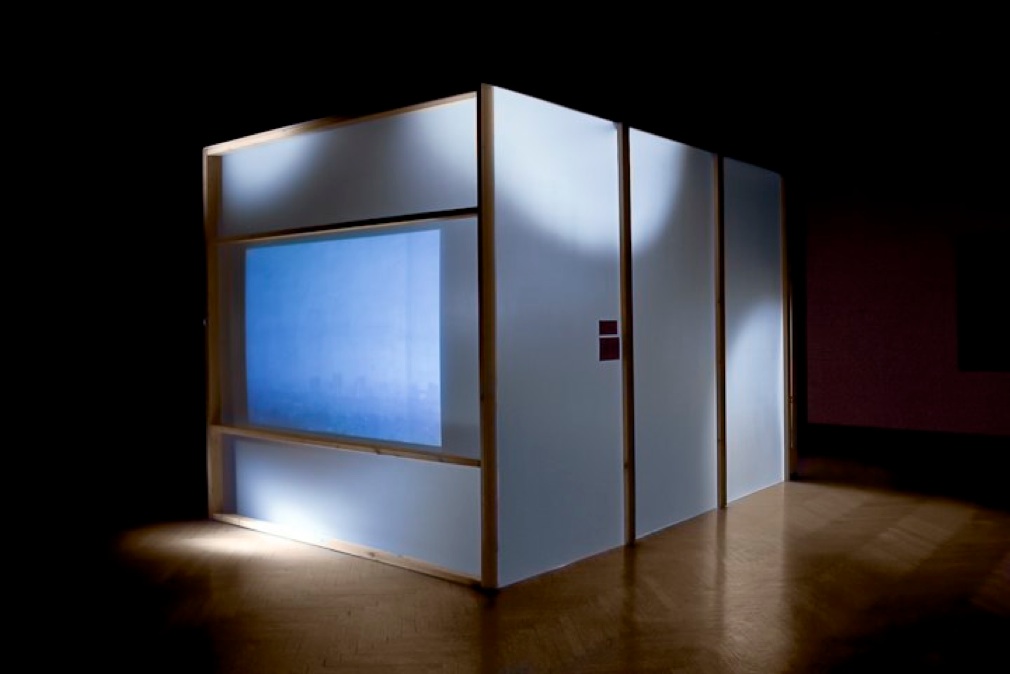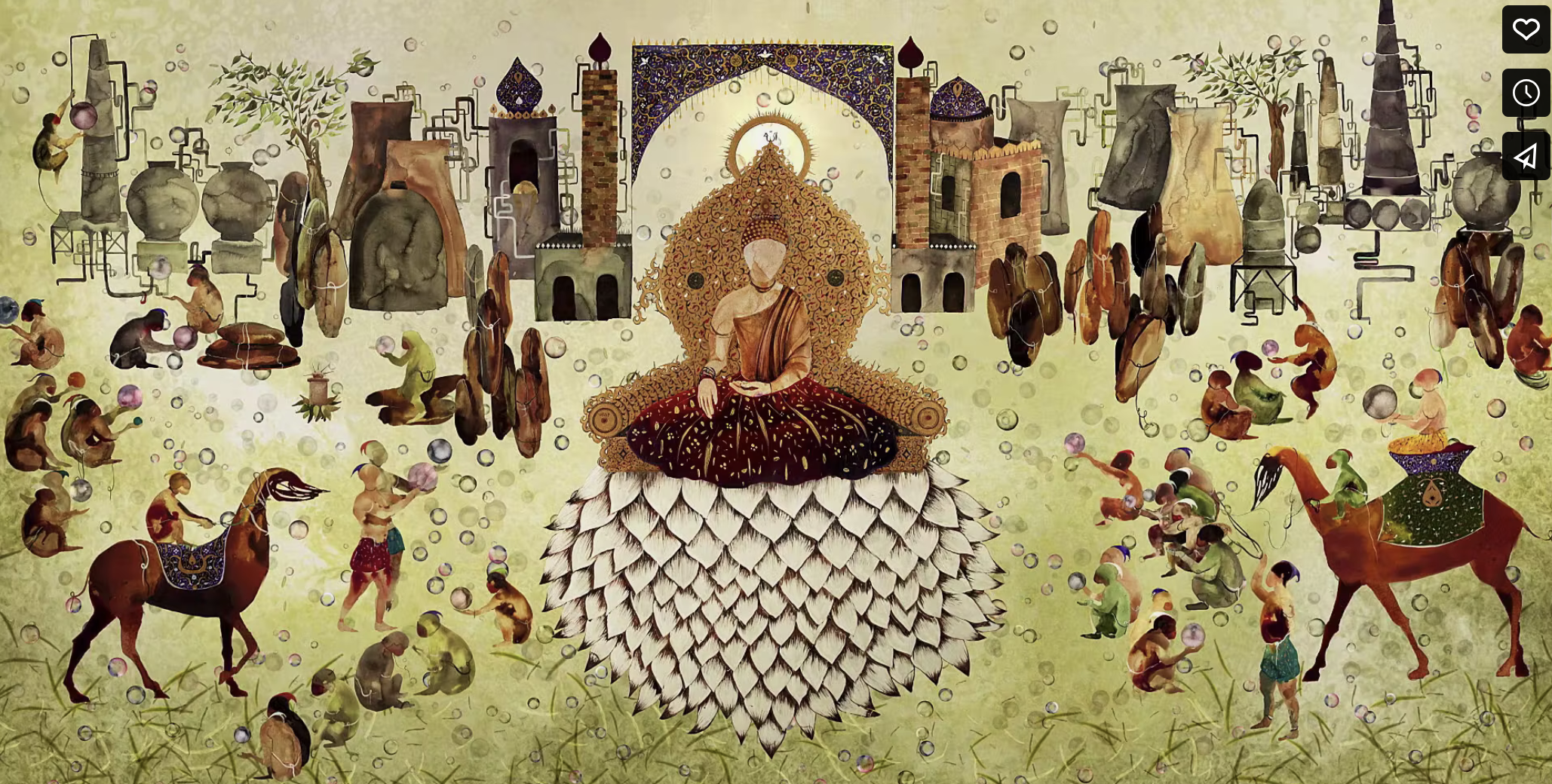- Instructor: Amana Harris
- Instructor: Steve Jones
- Instructor: Keith Thomas
This undergraduate studio course explores the rich wellspring of knowledge-making and truth-telling that can be found in everyone’s body. Starting from the basis that everyone performs in daily life, we will investigate the role of our identities and lived experiences in the creation of performance art. We will ground our practice in Black feminist and intersectional theory, as well as global historical and contemporary performance practices. Particular attention will be placed on the role of performance in social justice and civic engagement efforts. Students will learn how to develop a personal movement practice, build body awareness and skills in self-motivated movement exploration, which will open up the incorporation of performance into their artistic practice.
No prior dance or performance experience is necessary but a high level of motivation and commitment to process and transformation is required.
Important Note:
The act of performing and making performance requires full focus and the willingness to be vulnerable. It is important to treat this studio course as you would a sacred space. It is up to each individual to show up in a way that creates a safe environment for everyone.
No prior dance or performance experience is necessary but a high level of motivation and commitment to process and transformation is required.
Important Note:
The act of performing and making performance requires full focus and the willingness to be vulnerable. It is important to treat this studio course as you would a sacred space. It is up to each individual to show up in a way that creates a safe environment for everyone.
- Instructor: Valencia James

Course Overview
Museums have long been the keepers of cultural heritage, but for BIPOC communities, these institutions have often acted as sites of colonial possession, storing sacred objects, artworks, and artifacts far from their origins and communities. This studio course confronts the legacies of colonization in museum practices, asking: What responsibilities do museums have toward the people and cultures whose items they hold? How can we, as artists and designers, reimagine the role of the museum to center justice, care, and repair? Students will research case studies of BIPOC artifacts in museum collections, examining histories of acquisition, display, and erasure. We will work with community-based and decolonial methodologies to propose interventions, ranging from curatorial strategies to speculative design, that challenge extractive practices and offer pathways toward restitution and reconnection. The semester will culminate in a public exhibition that translates research into creative action, positioning students as active agents in the movement to radically redesign the museum.
Museums have long been the keepers of cultural heritage, but for BIPOC communities, these institutions have often acted as sites of colonial possession, storing sacred objects, artworks, and artifacts far from their origins and communities. This studio course confronts the legacies of colonization in museum practices, asking: What responsibilities do museums have toward the people and cultures whose items they hold? How can we, as artists and designers, reimagine the role of the museum to center justice, care, and repair? Students will research case studies of BIPOC artifacts in museum collections, examining histories of acquisition, display, and erasure. We will work with community-based and decolonial methodologies to propose interventions, ranging from curatorial strategies to speculative design, that challenge extractive practices and offer pathways toward restitution and reconnection. The semester will culminate in a public exhibition that translates research into creative action, positioning students as active agents in the movement to radically redesign the museum.
- Instructor: Ernest Jolly

Telling Stories takes an experimental approach to storytelling, exploring ways of narrating personal and collective stories in visual media, while focusing on the development of collaborative projects and artistic initiatives that involve the community on various levels from process to presentation. Emphasis will be on interdisciplinary processes from assemblage and installation, to sound and performance, from animation to video, creating projects that use research into histories of place and people as their inspiration and conceptual grounding. Presentations, guest lecturers and field research will examine ways in which art has contributed to the articulation of ethnic identity, exploring the power of storytelling in bringing communities together, expanding understanding and creating social change.
- Instructor: Taraneh Hemami
This course invites students to participate in the continuation of the mural projects developed in partnership with the Association of Ramaytush Ohlone. Through public art and collaborative learning, students will engage with the essential and generative question: “What does it feel like to be a settler on stolen land?”
Students will contribute directly to deepening our decolonial epistemologies while directly developing mural drafts in groups. Students will be engaging in critical dialogue around settler colonialism and its structural menace and creative resistance aesthetics. This is a space for hands-on work and deep listening. . No prior mural art experience is needed—just a commitment to community and care.This course honors Ramaytush Ohlone leadership and invites students to step into creative inquiry into the nature and capitulation of being a settler on stolen land and what that looks like visually. This is an ongoing CCA public art project the goal being to edify the viewer and project decolonial consciousness.
Students will contribute directly to deepening our decolonial epistemologies while directly developing mural drafts in groups. Students will be engaging in critical dialogue around settler colonialism and its structural menace and creative resistance aesthetics. This is a space for hands-on work and deep listening. . No prior mural art experience is needed—just a commitment to community and care.This course honors Ramaytush Ohlone leadership and invites students to step into creative inquiry into the nature and capitulation of being a settler on stolen land and what that looks like visually. This is an ongoing CCA public art project the goal being to edify the viewer and project decolonial consciousness.
- Instructor: Jack Leamy

ETHST-2000-5 / Fall 2025 Sept. 03 - Dec.13, Wed/Sat. 9:00AM-11:30AM // Main Bldg. – S22
Instructor: Mariella Poli mpoli@cca.edu
Locality & Global Discourse
New Global Geopolitical Order and Its Influence on the Local
Course Introduction
War + Climate Crisis + Famine + Violence + Economic Inequality + Displacement = Mass Migration
This interdisciplinary course invites students from diverse creative disciplines to develop a semester-long project in a medium of their choice, addressing the urgent global issue of mass migration. The course will explore the intersection of migration and the evolving geopolitical order, viewed through the lens of colonial and postcolonial theory and its effects on local communities—including Latinx, Asian American, African American, Middle Eastern, Indigenous, and other diasporic groups.
Instructor: Mariella Poli mpoli@cca.edu
Locality & Global Discourse
New Global Geopolitical Order and Its Influence on the Local
Course Introduction
War + Climate Crisis + Famine + Violence + Economic Inequality + Displacement = Mass Migration
This interdisciplinary course invites students from diverse creative disciplines to develop a semester-long project in a medium of their choice, addressing the urgent global issue of mass migration. The course will explore the intersection of migration and the evolving geopolitical order, viewed through the lens of colonial and postcolonial theory and its effects on local communities—including Latinx, Asian American, African American, Middle Eastern, Indigenous, and other diasporic groups.
- Instructor: Mariella Poli
